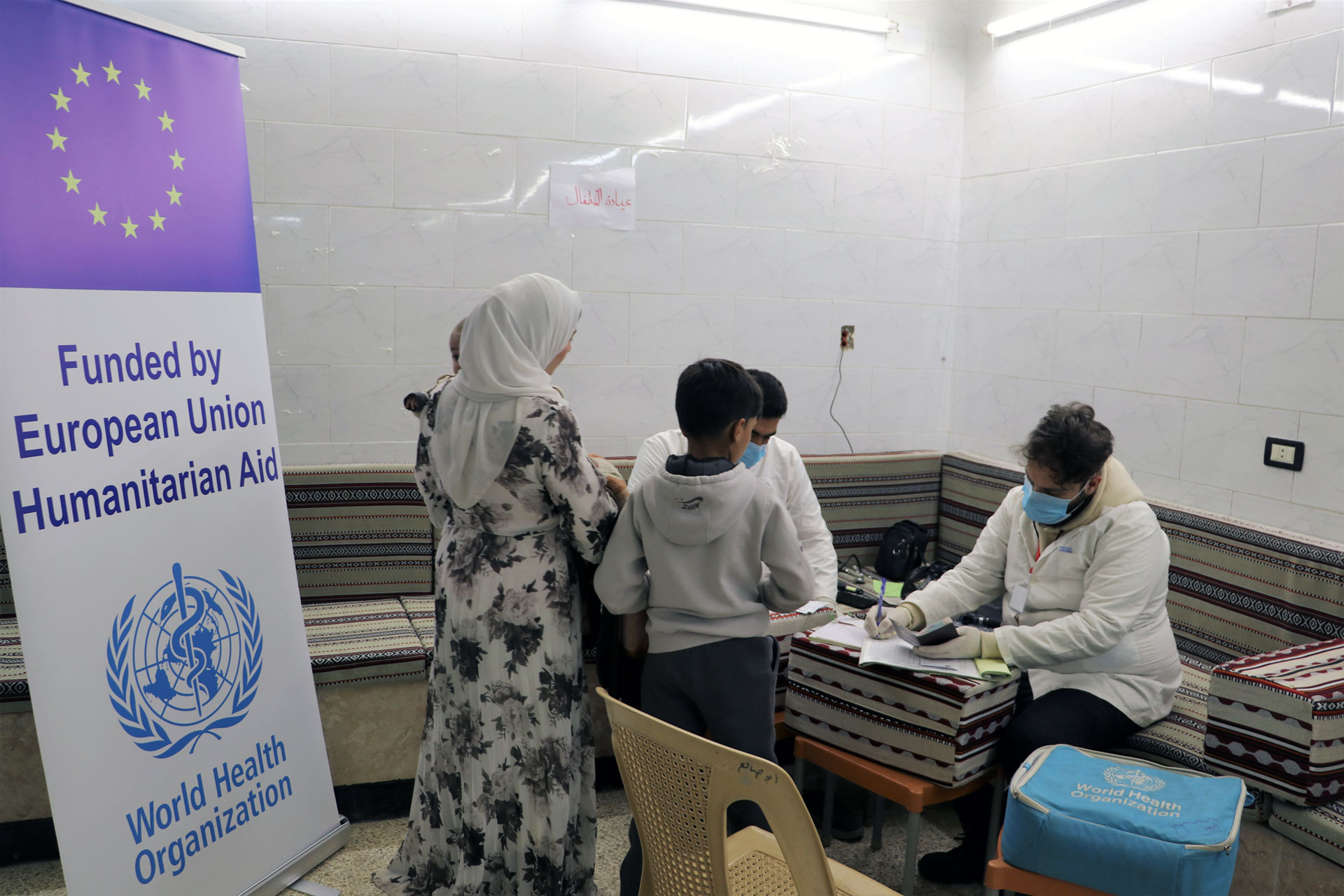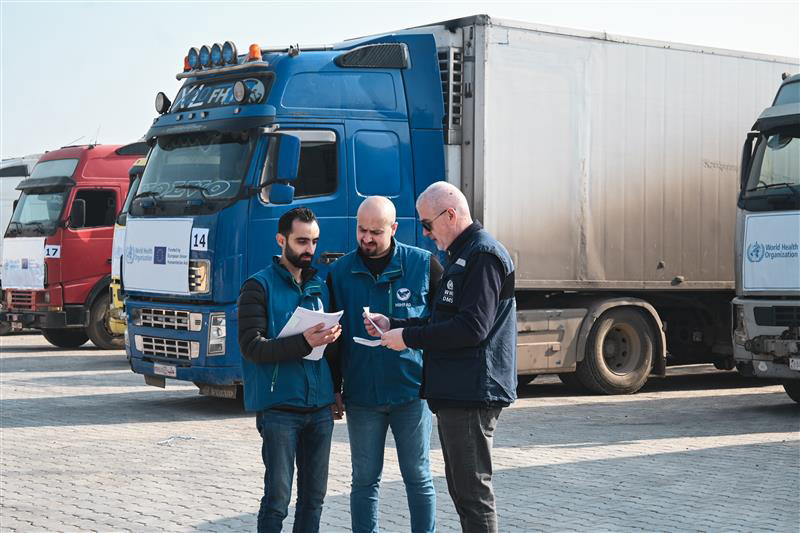 Families receive health services at Al Bir NGO in Hama governorate, supported by WHO with funding from ECHO. Photo: WHO2 September 2025, Damascus, Syrian Arab Republic – The European Union, through its Civil Protection and Humanitarian Aid Operations department, has contributed €22 million to support the World Health Organization’s efforts to sustain life-saving and life-sustaining health services for people across Syria.
Families receive health services at Al Bir NGO in Hama governorate, supported by WHO with funding from ECHO. Photo: WHO2 September 2025, Damascus, Syrian Arab Republic – The European Union, through its Civil Protection and Humanitarian Aid Operations department, has contributed €22 million to support the World Health Organization’s efforts to sustain life-saving and life-sustaining health services for people across Syria.
The funding will enable WHO to maintain essential health services, strengthen disease surveillance and outbreak response, and treat severe acute malnutrition among vulnerable groups. Over the next year, the support will ensure access to healthcare for more than 6.5 million people across all governorates in Syria.
“We are deeply grateful to the European Union for its continued partnership and commitment to health in Syria,” said Acting WHO Representative in Syria, Christina Bethke. “This funding arrives at a critical time when the health system remains severely strained after years of conflict. Keeping humanitarian health services running is essential as Syria enters its recovery phase. A well-planned transition will ensure lifesaving care continues while early recovery and development efforts help rebuild the health system for long-term stability.”
 ECHO-funded medical supplies entering Idlib from Türkiye in January 2025 to support health facilities serving vulnerable communities. Photo: WHOWHO will work with the Ministry of Health and health partners to provide medical supplies to over 600 health facilities, support more than 1.5 million primary healthcare consultations, expand trauma and emergency care, and strengthen mental health services. The funding will also support rapid disease detection and response systems, helping contain outbreaks such as cholera and influenza.
ECHO-funded medical supplies entering Idlib from Türkiye in January 2025 to support health facilities serving vulnerable communities. Photo: WHOWHO will work with the Ministry of Health and health partners to provide medical supplies to over 600 health facilities, support more than 1.5 million primary healthcare consultations, expand trauma and emergency care, and strengthen mental health services. The funding will also support rapid disease detection and response systems, helping contain outbreaks such as cholera and influenza.
“With ongoing fragility in Syria, any break in humanitarian aid could leave even more people without care. This support will enable WHO to deliver essential medicines, trauma and emergency kits, and nutrition supplies, while also training health workers to better manage injuries, malnutrition, and mental health needs,” added Christina Bethke. “It will help ensure that the most vulnerable – including children, women, and people with chronic diseases – continue to receive the care they need.”
WHO will continue delivering supplies from Türkiye into northwest Syria during this transition phase, with particular emphasis on support to health facilities serving displaced communities in Idlib and northern Aleppo. This includes working with local partners to manage warehouses, distribute medical supplies, and provide health services in hard-to-reach areas.
About EU Civil Protection and Humanitarian Aid
The European Union Civil Protection and Humanitarian Aid Operations department (DG ECHO) was created in 1992 as an expression of European solidarity with people in need across the world. The department first started as the EU’s humanitarian aid office. We have been providing humanitarian assistance for over 30 years, with the help of our field network and humanitarian partners. The EU’s humanitarian work is guided by the humanitarian principles grounded in international humanitarian law (humanity, neutrality, impartiality, and independence).
Media contacts:
Halah Kabash, This e-mail address is being protected from spambots. You need JavaScript enabled to view it
Mrinalini Santhanam, This e-mail address is being protected from spambots. You need JavaScript enabled to view it




